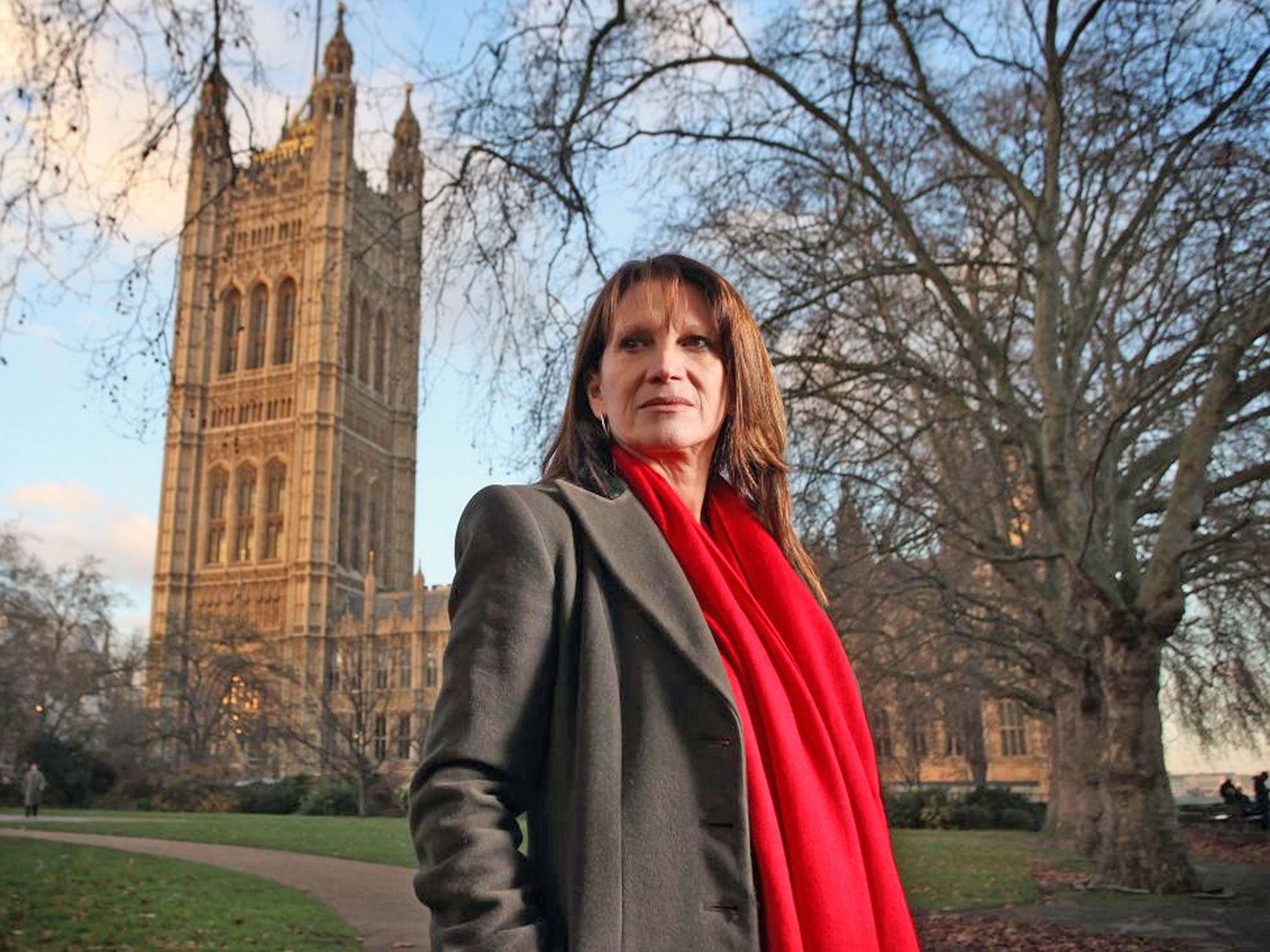Lynne Featherstone: Fighting for the rights of women - all over the world
Charlotte Philby meets the Lib Dem minister on a mission to end abuse

Your support helps us to tell the story
From reproductive rights to climate change to Big Tech, The Independent is on the ground when the story is developing. Whether it's investigating the financials of Elon Musk's pro-Trump PAC or producing our latest documentary, 'The A Word', which shines a light on the American women fighting for reproductive rights, we know how important it is to parse out the facts from the messaging.
At such a critical moment in US history, we need reporters on the ground. Your donation allows us to keep sending journalists to speak to both sides of the story.
The Independent is trusted by Americans across the entire political spectrum. And unlike many other quality news outlets, we choose not to lock Americans out of our reporting and analysis with paywalls. We believe quality journalism should be available to everyone, paid for by those who can afford it.
Your support makes all the difference.“Where do men get off?” Lynne Featherstone asks. Just because they are “physically stronger” or “more economically powerful”, they feel they can coerce women into “lives we don't want, into sexual relations we don’t want”, she says.
Ostensibly, at least, the Liberal Democrat minister is not talking about Britain – although she is no stranger to outspoken views on gender here, too. Today we are talking about Zambia, from where she has just returned from a trip to meet victims of domestic violence, as well as the First Lady and the newly-appointed Minister of Gender, as part of her brief as Parliamentary Under-Secretary for the Department for International Development (DFID).
In Masabuka, Featherstone discussed ways to empower a population where 63 per cent of women believe domestic battery is justifiable. “It’s a culture that is so far from our understanding,” she says. “Gender-based violence is on a spectrum from the United Kingdom right across the world.” Even at the milder end, here in Britain, as many as two women are killed by their partner or ex-partner each week.
Today, the MP for Hornsey and Wood Green’s mind is focused farther afield. The recent decision to cease British aid to India, she says, was just. “[In India] you have a stable democracy over many, many years with a personal income that made it a possibility,” she says. “That’s not to say in the state of Buhar you don’t have poverty.”
As for Rwanda, she believes the Government was right to withdraw support. “The Secretary of State made the decision to suspend aid and obviously she said we’ll keep a close eye monitoring that situation… if the business is done and the M23 have come out of Goma and Rwanda disassociates itself, but shows itself to have been a leader in making the peace, obviously we will re-examine our position,” she explains.
The money would be better spent, Featherstone says, in countries like Zambia, where “girls don’t know what those feelings are in their chest when they first grow breasts” and are “victims of sexual violence all the time”.
We meet at a conference in a stately building in Central London. At first sight the aid minister looks like she may be swallowed by a huge velvet curtain, but anything looking to obstruct this tiny tour-de-force would have a fight on its hands: according to one member of her staff, her dogged determination is the driving force behind her rise through the political ranks.
Now 60, Featherstone was born in Highgate, north London, studied communication and design at Oxford Polytechnic, and raised two daughters after separating from her husband in 1996.
Back on home turf, the prospect of tightening purse-strings following the Chancellor’s Autumn Statement looms over domestic charities. Featherstone has a stern message for the social sector: “Charity is amazing, but I think it also got too used to Government being the only funder.”
In order to survive, she says, the third sector needs to find new ways to generate revenue. “There were a number of funds set up for the Big Society…and on a different basis there are funds still set up,” she says. But these “transition funds” should not be confused with long-term handouts, the Minister argues.
As the Home Office’s Parliamentary Under-Secretary for equality – a post she held until being shifted across to DFID – Featherstone introduced the first legislation for civil partnerships. So what does she think now of Tories who oppose gay marriage?
“It’s a free world,” she says with careful diplomacy. “If someone opposes it for whatever reason, the older generation, because some of them think it’s a strange concept and not something they grew up with or feel comfortable with, I think it’s fine not to believe in it or agree with it. What I don’t think is fine is to stop people doing it who want to do it.”
Join our commenting forum
Join thought-provoking conversations, follow other Independent readers and see their replies
Comments